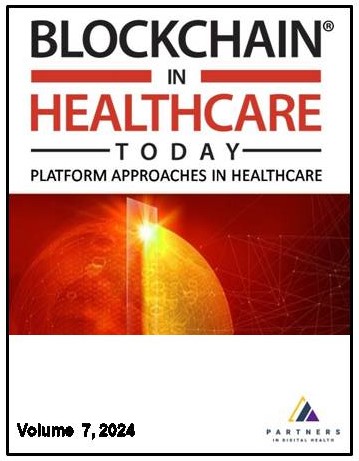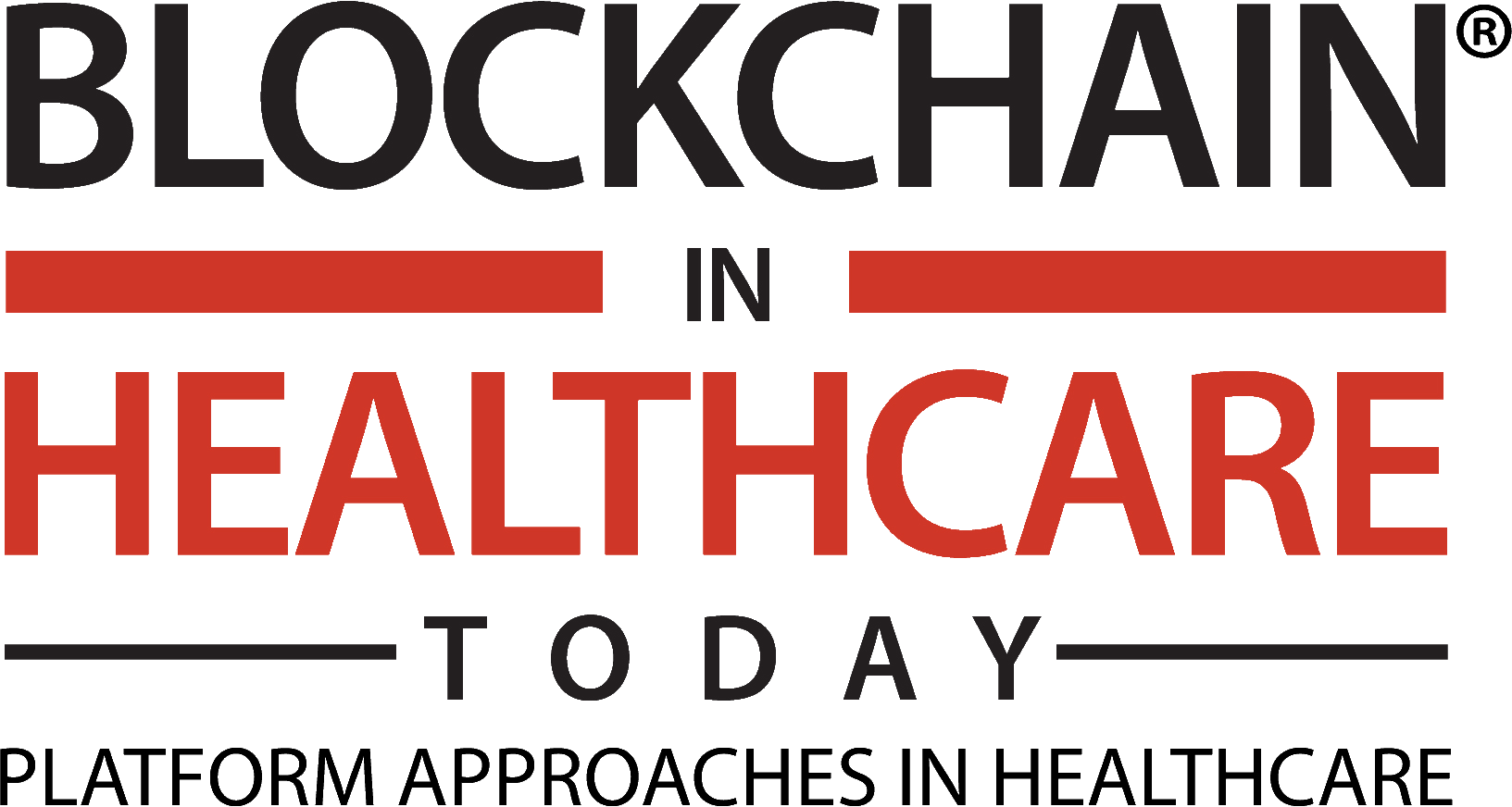Current issue

Volume 7, Issue 3, 2024
Online ISSN: 2573-8240
Volume 7 , Issue 3, (2024)
Published: 16.12.2024.
Open Access
Blockchain in Healthcare Today (BHTY) is the leading international open access journal that amplifies and disseminates platform approaches in healthcare and distributed ledger technology research and innovations. Fields of interest include healthcare information systems, leveraging data science tools and techniques, interoperability, consent mechanisms, privacy preservation, security of health data, clinical trials management, supply chain management, revenue cycle automation, immersive technologies, tokenomics, governance, regulation, network technologies, clinical computing, cryptography, and failed experiments in this expanding specialty field of research.
All issues
Contents
21.03.2022.
Original Research
Technical Design and Development of a Self-Sovereign Identity Management Platform for Patient-Centric Healthcare Using Blockchain Technology
Objective: Clinical data in the United States is highly fragmented, stored in numerous different databases, and are defined by service providers or clinical specialties rather than by individuals or their families. As a result, linking or aggregating a complete record for a patient is a major technological, legal, and operational challenge. One factor that has made clinical data integration so difficult to achieve is the lack of a universal ID for everyone. This leads to other related problems of having to prove identity at each interaction with the health system and providing basic information about demographics, insurance, payment, and medical conditions repeatedly. Traditional solutions that require complex governance, expensive technology, and risks to privacy and security of the data have failed to solve this interoperability problem adequately. We describe the technical design decisions of a patient-centric decentralized health identity management system using blockchain technology, called MediLinker, to address some of these challenges. Design: Our multi-disciplinary research group developed and implemented an identity wallet, that uses blockchain technology to manage verifiable credentials issued by healthcare clinics, banks, and insurance companies. To manage patient’s self-sovereign identity, we leveraged the Hyperledger Indy blockchain framework to store patient’s decentralized identifiers (DIDs) and the schemas or format for each credential type. In contrast, the credentials containing patient data are stored “off-ledger” in each person’s wallet and accessible via a computer or smartphone. We used Hyperledger Aries as a middleware layer (API) to connect Hyperledger Indy with the front-end, which was developed using a JavaScript framework, ReactJS (Web Application) and React Native (iOS Application). Results: MediLinker allows users to store their personal data on digital wallets, which they control. It uses decentralized trusted identity using Hyperledger Indy and Hyperledger Aries. Patients use MediLinker to register and share their information securely and in a trusted system with healthcare and other service providers. Each MediLinker wallet can have six credential types: Health ID with patient demographics, insurance, medication list including COVID-19 vaccination status, credit card, medical power of attorney (MPOA) for guardians of pediatric or geriatric patients, and research consent. The system allows for in-person and remote granting and revoking of such permissions for care, research, or other purposes without repeatedly requiring physical identity documents or enrollment information. Conclusion: We have successfully developed and tested a blockchain-based technical architecture, described in this paper, as an identity management system that may be operationalized and scaled for future implementation to improve patient experience and control over their personal information.
Daniel Toshio Harrell, Muhammad Usman, Ladd Hanson, Mustafa Abdul-Moheeth, Ishav Desai, Jahnavi Shriram, Eliel De Oliveira, John Robert Bautista, Eric T. Meyer, Anjum Khurshid
21.03.2022.
Original Research
Clinical, Organizational and Regulatory, and Ethical and Social
Objective: While existing research by our team has demonstrated the feasibility of building a decentralized identity management application (‘MediLinker’) for health information, there are implementation issues related to testing such blockchain-based health applications in real-world clinical settings. In this study, we identified clinical, organizational and regulatory, and ethical and social (CORES) issues, including recommendations, associated with deploying MediLinker, and blockchain in general, for clinical testing.
Method: CORES issues and recommendations were identified through a focus group with 11 academic, industry, and government experts on March 26, 2021. They were grouped according to their expertise: clinical care (n = 4), organizational and regulatory concerns (n = 4), and ethical and social issues (n = 3). The focus group was conducted via Zoom in which experts were briefed about the study aims, formed into breakout groups to identify key issues based on their group’s expertise, and reconvened to share identified issues with other groups and to discuss potential recommendations to address such issues. The focus group was video recorded and transcribed. The resulting transcriptions and meeting notes were imported to MAXQDA 2018 for thematic analysis.
Results: Clinical experts identified issues that concern the clinical system, clinical administrators, clinicians, and patients. Organizational and regulatory experts emphasized issues on accountability, compliance, and legal safeguards. Ethics and social-context experts raised issues on trust, transparency, digital divide, and health-related digital autonomy. Accordingly, experts proposed six recommendations that could address most of the identified issues: (1) Design interfaces based on patient preferences; (2) ensure testing with diverse populations; (3) ensure compliance with existing policies; (4) present potential positive outcomes to top management; (5) maintain clinical workflow; and (6) increase the public’s awareness of blockchain.
Conclusion: This study identified a myriad of CORES issues associated with deploying MediLinker in clinical settings. Moreover, the study also uncovered several recommendations that could address such issues. The findings raise awareness on CORES issues that should be considered when designing, developing, and deploying blockchain for healthcare. Further, the findings provide additional insights into the development of MediLinker from a prototype to a minimum viable product for clinical testing. Future studies can use CORES as a socio-technical model to identify issues and recommendations associated with deploying health information technologies in clinical settings.
Robert Bautista John
